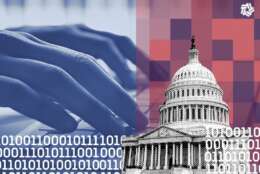Technology
-
Anil Tilbe, a director with the Department of Veterans Affairs, explains how his understanding of artificial intelligence has evolved through different lenses over the last few years.
August 10, 2023 -
Ever since the first Microsoft Word macro attack, documents have been a source of malware delivery. Thirty years later it's still a problem. Word documents, PDFs, photographs, spreadsheets, they all remain potent delivery mechanisms for hackers.
August 10, 2023 -
Congress looks for new ways to fund innovation for DoD with public-private partnerships as it continues authorization of the Office of Strategic Capital.
August 09, 2023 -
The Department of Veterans Affairs is facing an eleventh-hour surge of applications from veterans looking to receive the maximum benefit they qualify for under the toxic-exposure PACT Act.
August 09, 2023 -
Michael Gifford, a senior strategist for CivicActions, highlights key questions that agencies should pay close attention to in the new 508 assessment criteria to improve accessibility of technology for citizens and employees alike.
August 09, 2023 -
There's cybersecurity, and then there's cyberwarfare. My next guest is both an academic and a practitioner of cyber wargames. He's here to update us on the types of exercises going on right now in federal agencies.
August 09, 2023 -
The “AI Cyber Challenge” announced today will be a two-year effort with involvement from leading companies Anthropic, Google, Microsoft and OpenAI.
August 09, 2023 -
Agencies often ponder whether to apply AI to citizen interactions under the customer experience movement, or to making internal operations more efficient. But the two are connected, said Susan Wedge, managing partner for the U.S. public and federal market at IBM Consulting.
August 09, 2023









